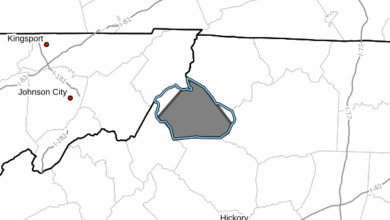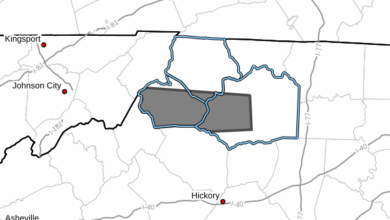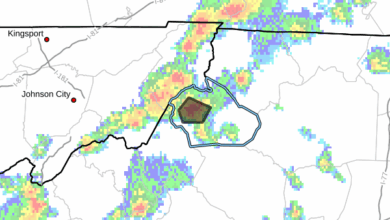Last Updated on November 10, 2016 1:14 pm
“As eastern North Carolina was underwater due to flooding from Hurricane Matthew, the western part of the state has been suffering from a severe drought and now hundreds of acres are burning,” said Governor McCrory. “This declaration will help facilitate evacuations as needed and provide further state assets to help combat the wildfires and support North Carolinians displaced by the fires. This is extremely dangerous work and I especially want to thank the firefighters, first responders, sheriffs and other emergency personnel that have risked their own lives to protect our citizens and property.”
Forest wildfires are burning in several western North Carolina counties that are experiencing extreme drought. The State of Emergency is in effect for 25 counties including Alexander, Avery, Buncombe, Burke, Caldwell, Catawba, Cherokee, Clay, Cleveland, Gaston, Graham, Haywood, Henderson, Jackson, Lincoln, Macon, Madison, McDowell, Mitchell, Polk, Rutherford, Swain, Transylvania, Watauga and Yancey counties.
The N.C. Forest Service has issued a burning ban on all open burning and cancelled burning permits in 25 counties in the western part of the state. To date, there have been evacuations ordered in Clay, Graham, Macon, Rutherford and Swain counties.
In support of the U.S. Forest Service, N.C. Emergency Management's Helo-Aquatic Rescue Team has deployed a N.C. National Guard Blackhawk helicopter and local rescue technicians to perform any rescues necessary from wildfire fighting operations.
Last week in Clay County, the governor highlighted that the top priority for the state is to avoid any harm to structures, people and livestock in the area. He also noted that these wildfires are some of the most serious fires to occur in North Carolina in nearly two decades.
With more crews and equipment arriving to fight fires in the area, emergency management officials are encouraging motorists to exercise caution when driving. Homeowners can also prevent property damage from fires by keeping flammable materials such as woodpiles or dead leaves away from their homes or propane tanks.

















